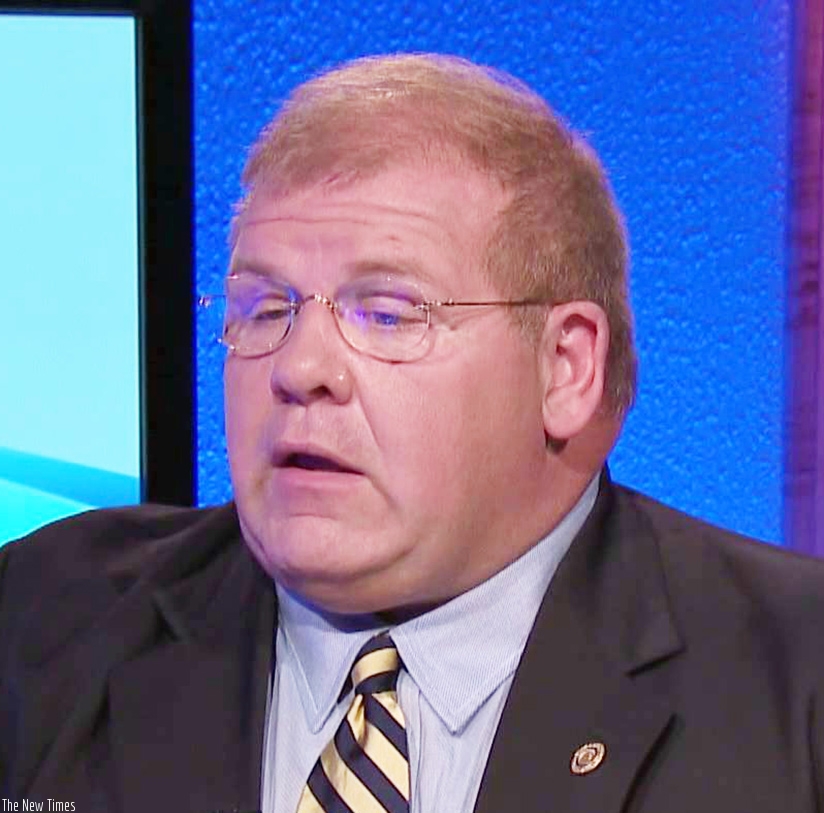As an educator and honourably a “Friend of Rwanda”, I can testify that Rwanda continues to amaze the world through the positive progress made by Rwandan students and teachers as they build capacity in areas of ICT, Science and Math, and especially in English Language Acquisition.


As an educator and honourably a "Friend of Rwanda”, I can testify that Rwanda continues to amaze the world through the positive progress made by Rwandan students and teachers as they build capacity in areas of ICT, Science and Math, and especially in English Language Acquisition.
This inspirational progress comes from a coordinated commitment by the Ministry of Education (MINEDUC) and Rwanda Education Board (REB), schools, teachers and parents throughout Rwanda, among other stakeholders, all working together.
Even with all these gains, there has been some debate on when learning the English language should begin in the primary schools. Presently, English begins to be taught in Primary Three and some believe it should begin earlier.
Introduction of English studies earlier than P3, in this case, is not necessarily better.
It is most impressive that great care is taken by Rwanda to assure that every citizen, from child to adult, understands the critical importance of Rwandan traditions, Kinyarwanda and acknowledges the pride in being Rwandan.
MINEDUC and REB’s policy of starting studies in the English language in P3 follows the idea of supporting the family and "Rwandaness”.
Introducing students at their earliest stage in life to Kinyarwanda is an indication of the importance attached to the native language and one way of encouraging parents to work with their children makes the transition from home to school that much more successful.
Bravo for the outside of the box thinking by the ministry.
The English in P3 education strategy supports a "whole student” concept that focuses or ties together culture and education.
Itorero, where Rwandans focus on language, patriotism, social relations, sports, dancing, songs and culture, was created so that young people could grow with an appreciation, understanding and love of Rwandan culture.
Participants are encouraged to explore Rwandan cultural values. The key phrase here is cultural values. Studies across the world agree that ethnic identity instilling of national pride/ cultural values occurs during the very early years of a child’s life.
Encouraging family to participate in their child’s education, supporting (Itorero) culture in early education by using Kinyarwanda is Rwanda preserving her past, and beginning English studies in P3 is preparing her children for a prosperous future. Truly, a brilliant strategy.
As part of the Rwandan Teacher Education Program (RTEP), we visit many schools throughout the country and continually are impressed both by the advancements in teaching and learning and the visionary commitment by government leaders.
Children accept their role in the Rwandan success story and learn that the skill development they participate in throughout their education, will support Rwandan self-sufficiency. This self sufficient patriotism is lost to the rest of the world but is healthy in Rwanda.
Whether motivated by travel, careers, or general self-betterment, learning new languages opens doors and expands the mind but the mix of Kinyarwanda and business English never forgets Rwandan identity.
In September of 2016, President Paul Kagame addressed thousands of Rwandans and friends of Rwanda in San Francisco, and spoke to the importance of Rwandan identity. The President said, "It is the common thread that runs through a society and brings people together. The moment we put our people first, culture becomes the glue that holds our people; we do not give up; we are never thrown off balance. We are held by this rich culture.”
The success of the future of Rwanda is held by the lessons of the past, the family, culture, education and traditions.
Beginning English learning in P3 offers children a positive mixture through the opportunity to appreciate their past, include their parents in their education and strengthen family bonds as they begin along the road to Rwanda’s Vision 2050 future.
The future for Rwanda is very bright. The author is the Director of the Rwandan Teacher Education Program at the College of Education, Nursing and Health Professions at the University of Hartford in West Hartford, Connecticut, USA.


